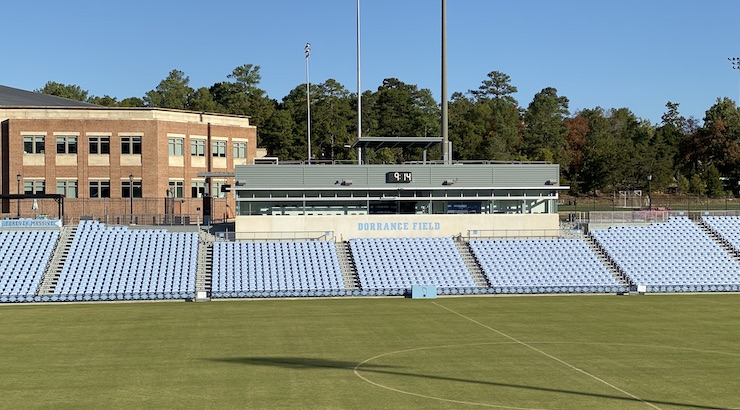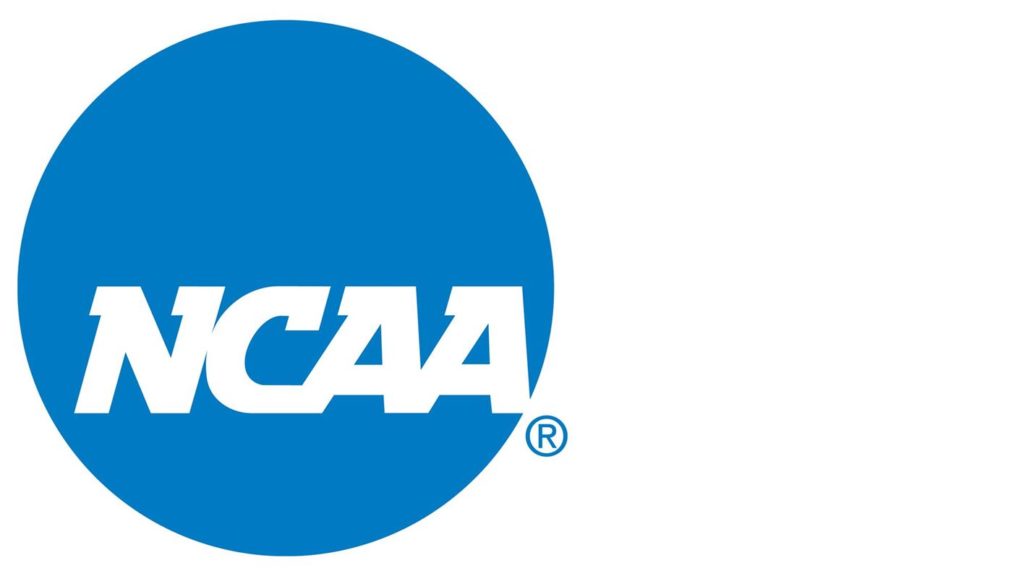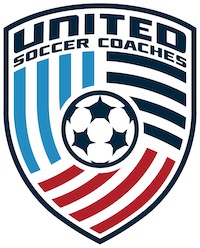D
Diane Scavuzzo
Guest
COVID Impacts All Levels of The American Collegiate Soccer Game
No one could or would ever have suspected the massive impact of the Coronavirus on college soccer. With hundreds of collegiate games canceled this season and many conferences pushed to the spring, the landscape is enduring constant changes.
The long-range impact of the unprecedented Coronavirus COVID-19 pandemic on our soccer world will only become clear in the future, yet the effect on collegiate soccer is massive.

University of North Carolina – Anson Dorrance Field
The 2020 American College Soccer season will be in the history books. COVID-19 has led to a seemingly endless and often confusing series of cancellations with originally fall conferences pushed to possibly play in the spring. Cancellations leave entering freshman pondering taking a gap year and graduating seniors at a tragic loss of their final days in their collegiate careers.
The Ivy League announced July 8 that it was canceling fall sports, and became the first Division I conference to opt-out because of the pandemic. This action did not start a landslide of colleges following in their footsteps but did start the trickle of cancelations which has now grown to complete stoppage of DII and DIII college soccer.
The financial stakes of not holding the fall sports will be very high for some colleges, but until the crisis subsides, universities in COVID hot spots have little options, and the safety of players, coaches, and staff must come first.
NCAA’s statement, Division III Presidents Council cancels fall championships – Moving sports to spring proved unworkable declared NCAA Division III championships in fall sports for 2020-21 canceled citing the reasons of the health and safety of the division’s student-athletes, coaches, athletics administrators and communities as its priority. The Division III Presidents Council made the decision Wednesday.

“Looking at the health and safety challenges we face this fall during this unprecedented time, we had to make this tough decision to cancel championships for fall sports this academic year in the best interest of our student-athletes and member institutions,” said Tori Murden McClure, chair of the Presidents Council and president at Spalding.
“Our Championships Committee reviewed the financial and logistical ramifications if Division III fall sports championships were conducted in the spring and found it was logistically untenable and financially prohibitive,” said McClure. “Our Management Council reached the same conclusion. Moving forward, we will try to maximize the championships experience for our winter and spring sport student-athletes, who unfortunately were short-changed last academic year.”
NCAA’s statement, DII Presidents Council cancels fall 2020 championships – Holding competitions as planned or postponing them to spring deemed not feasible released later in the day did not improve the fight to play.
Canceling Division II’s seven fall 2020 championships, the Division II Presidents Council decided it was not feasible to hold fall championships as planned or to postpone them to the spring because of the impact of the Coronavirus COVID-19 pandemic.
The council made the move after the NCAA Board of Governors directed each division to make a decision on its fall sport championships. As of Wednesday, 11 of the 23 Division II conferences had announced they would not compete during the traditional fall season due to the pandemic.
“After reviewing and discussing the Board of Governors’ directives, the Division II Presidents Council made the difficult decision that holding fall championships in any capacity was not a viable or fiscally responsible option for Division II,” said Sandra Jordan, chancellor of South Carolina Aiken and chair of the council.
“This decision was discussed very thoroughly, and I assure you, it was not made lightly,” said Jordan. “It is important to note that fall student-athletes will be given eligibility-related flexibility to allow them championship opportunities in the future. As we move forward, we will continue to focus on providing the best championships experience for our winter and spring student-athletes who were not afforded those opportunities at the beginning of this pandemic.”
The situation is fast moving and plagued with uncertainty.
United Soccer Coaches‘ release on August 5, Board Directs each Division to Safeguard Student-Athlete Well-Being, Scholarships and Eligibility, included information on how the status of fall NCAA championships had to be decided no later than Aug. 21. Before the day was out, this fast-moving landscape had already changed with the NCAA cancelation of DII and DIII championships.

Rob Kehoe, Director of College Programs for United Soccer Coaches is an expert on American collegiate soccer and oversees the college programs at the nation’s largest coaching organization. Kehoe has been watching the continually shifting collegiate soccer scene carefully.
Kehoe manages the United Soccer Coaches’ College Rankings is a highly respected and valuable source of information. With 30 years of experience in college soccer, Kehoe acknowledges the collegiate soccer scene is presently turbulent but refuses to rush to judgment on how the impact of the pandemic will play out over time.
“We now are waiting to know the decision about Division I NCAA Championships,” said Kehoe. “The NCAA August 21 decision date is only weeks away. Division I men already have about 40% of their 205 teams opting out of playing this fall, which nears the 50% threshold for NCAA fall championship consideration.
Division I Women are approaching 30% of 335 teams opting out of fall play. Between now and August 21st, there will be many discussions and decisions made by schools and conferences — so we can expect the possibility of more changes in the shifting 2020-21 college soccer landscape,” added Kehoe.
Before the decision to not hold NCAA Chamoppinships, DII colleges had nearly 50% of their teams have opted out and DII colleges had 43 out of 44 conferences canceled so far this season — originally with the intention of playing in the spring and a possible postponed NCAA Championship.
Here is an excerpt from yesterday’s release from United Soccer Coaches on NCAA and Collegiate Soccer:
The NCAA board expressed serious concerns about the continuing high levels of COVID-19 infection in many parts of the nation. The board has determined that it will only support moving forward with fall championships and other postseason play if strict conditions are applied and adhered to.
The requirements include:
“The first and most important consideration is whether sports can be conducted safely for college athletes,” said Michael V. Drake, chair of the board and University of California system president. “Each division must examine whether it has the resources available to take the required precautions given the spread of COVID-19.”
The board based its requirements on guidance from the NCAA’s COVID-19 Advisory Panel, established in March and comprising leading medical, public health and epidemiology experts. The panel will continue to closely monitor the pandemic and its impact on higher education and college sports and to provide any recommended changes to the requirements.
“Our decisions place emphasis where it belongs — on the health and safety of college athletes,” NCAA President Mark Emmert said. “Student-athletes should never feel pressured into playing their sport if they do not believe it is safe to do so. These policies ensure they can make thoughtful, informed decisions about playing this fall.”
The post NCAA CANCELS DII & DIII SOCCER CHAMPIONSHIPS – THE IMPACT OF COVID ON THE AMERICAN COLLEGIATE GAME appeared first on SoccerToday.
Continue reading...
SoccerToday News from Diane Scavuzzo
No one could or would ever have suspected the massive impact of the Coronavirus on college soccer. With hundreds of collegiate games canceled this season and many conferences pushed to the spring, the landscape is enduring constant changes.
The long-range impact of the unprecedented Coronavirus COVID-19 pandemic on our soccer world will only become clear in the future, yet the effect on collegiate soccer is massive.

University of North Carolina – Anson Dorrance Field
The 2020 American College Soccer season will be in the history books. COVID-19 has led to a seemingly endless and often confusing series of cancellations with originally fall conferences pushed to possibly play in the spring. Cancellations leave entering freshman pondering taking a gap year and graduating seniors at a tragic loss of their final days in their collegiate careers.
The Ivy League announced July 8 that it was canceling fall sports, and became the first Division I conference to opt-out because of the pandemic. This action did not start a landslide of colleges following in their footsteps but did start the trickle of cancelations which has now grown to complete stoppage of DII and DIII college soccer.
The financial stakes of not holding the fall sports will be very high for some colleges, but until the crisis subsides, universities in COVID hot spots have little options, and the safety of players, coaches, and staff must come first.
Now an enormous percentage of collegiate soccer had ground to a halt and the hope is that a portion of DI conferences can be played safety.
NCAA’s statement, Division III Presidents Council cancels fall championships – Moving sports to spring proved unworkable declared NCAA Division III championships in fall sports for 2020-21 canceled citing the reasons of the health and safety of the division’s student-athletes, coaches, athletics administrators and communities as its priority. The Division III Presidents Council made the decision Wednesday.

“Looking at the health and safety challenges we face this fall during this unprecedented time, we had to make this tough decision to cancel championships for fall sports this academic year in the best interest of our student-athletes and member institutions,” said Tori Murden McClure, chair of the Presidents Council and president at Spalding.
“Our Championships Committee reviewed the financial and logistical ramifications if Division III fall sports championships were conducted in the spring and found it was logistically untenable and financially prohibitive,” said McClure. “Our Management Council reached the same conclusion. Moving forward, we will try to maximize the championships experience for our winter and spring sport student-athletes, who unfortunately were short-changed last academic year.”
NCAA’s statement, DII Presidents Council cancels fall 2020 championships – Holding competitions as planned or postponing them to spring deemed not feasible released later in the day did not improve the fight to play.
Canceling Division II’s seven fall 2020 championships, the Division II Presidents Council decided it was not feasible to hold fall championships as planned or to postpone them to the spring because of the impact of the Coronavirus COVID-19 pandemic.
The council made the move after the NCAA Board of Governors directed each division to make a decision on its fall sport championships. As of Wednesday, 11 of the 23 Division II conferences had announced they would not compete during the traditional fall season due to the pandemic.
“After reviewing and discussing the Board of Governors’ directives, the Division II Presidents Council made the difficult decision that holding fall championships in any capacity was not a viable or fiscally responsible option for Division II,” said Sandra Jordan, chancellor of South Carolina Aiken and chair of the council.
“This decision was discussed very thoroughly, and I assure you, it was not made lightly,” said Jordan. “It is important to note that fall student-athletes will be given eligibility-related flexibility to allow them championship opportunities in the future. As we move forward, we will continue to focus on providing the best championships experience for our winter and spring student-athletes who were not afforded those opportunities at the beginning of this pandemic.”
The situation is fast moving and plagued with uncertainty.
United Soccer Coaches‘ release on August 5, Board Directs each Division to Safeguard Student-Athlete Well-Being, Scholarships and Eligibility, included information on how the status of fall NCAA championships had to be decided no later than Aug. 21. Before the day was out, this fast-moving landscape had already changed with the NCAA cancelation of DII and DIII championships.

Rob Kehoe, Director of College Programs for United Soccer Coaches is an expert on American collegiate soccer and oversees the college programs at the nation’s largest coaching organization. Kehoe has been watching the continually shifting collegiate soccer scene carefully.
Kehoe manages the United Soccer Coaches’ College Rankings is a highly respected and valuable source of information. With 30 years of experience in college soccer, Kehoe acknowledges the collegiate soccer scene is presently turbulent but refuses to rush to judgment on how the impact of the pandemic will play out over time.
“With yesterday’s announcements of Divisions II and III not having NCAA championships, college soccer enters a whole new world of uncertainty.”
Rob Kehoe, Director of College Programs for United Soccer Coaches
“We now are waiting to know the decision about Division I NCAA Championships,” said Kehoe. “The NCAA August 21 decision date is only weeks away. Division I men already have about 40% of their 205 teams opting out of playing this fall, which nears the 50% threshold for NCAA fall championship consideration.
Division I Women are approaching 30% of 335 teams opting out of fall play. Between now and August 21st, there will be many discussions and decisions made by schools and conferences — so we can expect the possibility of more changes in the shifting 2020-21 college soccer landscape,” added Kehoe.
Before the decision to not hold NCAA Chamoppinships, DII colleges had nearly 50% of their teams have opted out and DII colleges had 43 out of 44 conferences canceled so far this season — originally with the intention of playing in the spring and a possible postponed NCAA Championship.
Here is an excerpt from yesterday’s release from United Soccer Coaches on NCAA and Collegiate Soccer:
The NCAA board expressed serious concerns about the continuing high levels of COVID-19 infection in many parts of the nation. The board has determined that it will only support moving forward with fall championships and other postseason play if strict conditions are applied and adhered to.
The requirements include:
- All fall sports activity (preseason, regular season and postseason) must follow the recently released return-to-sport guidelines from the NCAA Sport Science Institute for all athletic activity. As the guidelines change based on the ever-changing pandemic, schools must follow any future modifications.
- The NCAA will establish a phone number and email to allow college athletes, parents or others to report alleged failures. The Association will notify school and conference administrators, who will be expected to take immediate action.
- All member schools must adhere to federal, state and local guidelines related to COVID-19. Further, the conduct of NCAA championships must be in line with federal, state and local guidelines.
- All student-athletes must be allowed to opt out of participation due to concerns about contracting COVID-19. If a college athlete chooses to opt out, that individual’s athletics scholarship commitment must be honored by the college or university.
- Each division must determine no later than Aug. 14 the eligibility accommodations that must be made for student-athletes who opt out of participating this fall or for those whose seasons are canceled or cut short due to COVID-19. College athletes and their families must know what their eligibility status will be before beginning the fall season.
- Member schools may not require student-athletes to waive their legal rights regarding COVID-19 as a condition of athletics participation.
- Member schools, in conjunction with existing insurance standards, must cover COVID-19 related medical expenses for student-athletes to prevent out-of-pocket expenses for college athletes and their families.
- If 50% or more of eligible teams in a particular sport in a division cancel their fall season, there will be no fall NCAA championship in that sport in that division.
“The first and most important consideration is whether sports can be conducted safely for college athletes,” said Michael V. Drake, chair of the board and University of California system president. “Each division must examine whether it has the resources available to take the required precautions given the spread of COVID-19.”
The board based its requirements on guidance from the NCAA’s COVID-19 Advisory Panel, established in March and comprising leading medical, public health and epidemiology experts. The panel will continue to closely monitor the pandemic and its impact on higher education and college sports and to provide any recommended changes to the requirements.
“Our decisions place emphasis where it belongs — on the health and safety of college athletes,” NCAA President Mark Emmert said. “Student-athletes should never feel pressured into playing their sport if they do not believe it is safe to do so. These policies ensure they can make thoughtful, informed decisions about playing this fall.”
The post NCAA CANCELS DII & DIII SOCCER CHAMPIONSHIPS – THE IMPACT OF COVID ON THE AMERICAN COLLEGIATE GAME appeared first on SoccerToday.
Continue reading...
SoccerToday News from Diane Scavuzzo
